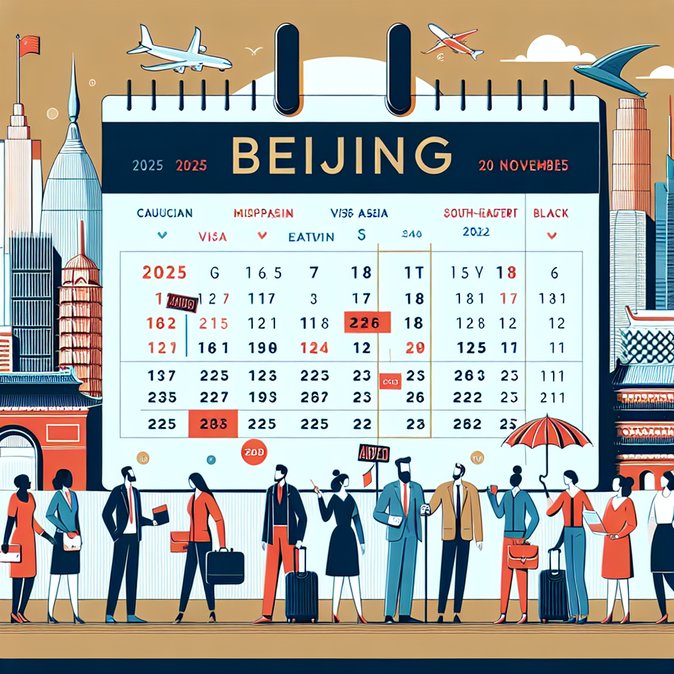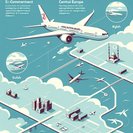
China’s Foreign Ministry confirmed on 3 November that the country’s unilateral visa-free entry scheme—previously due to expire on 31 December 2025—will now run until 31 December 2026. The extension covers 45 countries across Europe, the Asia-Pacific, South America and the Gulf, and, for the first time, Sweden will be added to the list from 10 November. Ordinary-passport holders from the eligible countries may continue to enter China for business, tourism, family visits or transit for up to 30 days without applying for a visa in advance.
The decision signals Beijing’s determination to revive inbound travel volumes, which remain below pre-pandemic levels despite a strong rebound in domestic tourism. Removing the looming ‘sun-set’ clause gives airlines, tour operators and corporate mobility managers a clearer planning horizon of more than twelve months, making it easier to restore or expand China-bound flight capacity and assignment rotations.
![China Extends Visa-Free Entry Scheme to End-2026 and Adds Sweden]()
For multinational companies the news removes a layer of administrative friction. Short-term assignees, regional sales staff and technical specialists can now continue to rely on visa-free entry when shuttling between China and Europe, Australia, Japan or South Korea. The addition of Sweden—home to a dense cluster of advanced-manufacturing firms—adds further convenience for supply-chain engineers and R&D teams moving between Scandinavian and Chinese production hubs.
The policy still excludes the United States, Canada and the United Kingdom, but the continued relaxation may keep pressure on those governments to negotiate reciprocal arrangements. Travel-managers should note that the 30-day limit cannot be extended in-country, and work activities still require the appropriate Z-visa and work permit.
The decision signals Beijing’s determination to revive inbound travel volumes, which remain below pre-pandemic levels despite a strong rebound in domestic tourism. Removing the looming ‘sun-set’ clause gives airlines, tour operators and corporate mobility managers a clearer planning horizon of more than twelve months, making it easier to restore or expand China-bound flight capacity and assignment rotations.

For multinational companies the news removes a layer of administrative friction. Short-term assignees, regional sales staff and technical specialists can now continue to rely on visa-free entry when shuttling between China and Europe, Australia, Japan or South Korea. The addition of Sweden—home to a dense cluster of advanced-manufacturing firms—adds further convenience for supply-chain engineers and R&D teams moving between Scandinavian and Chinese production hubs.
The policy still excludes the United States, Canada and the United Kingdom, but the continued relaxation may keep pressure on those governments to negotiate reciprocal arrangements. Travel-managers should note that the 30-day limit cannot be extended in-country, and work activities still require the appropriate Z-visa and work permit.










